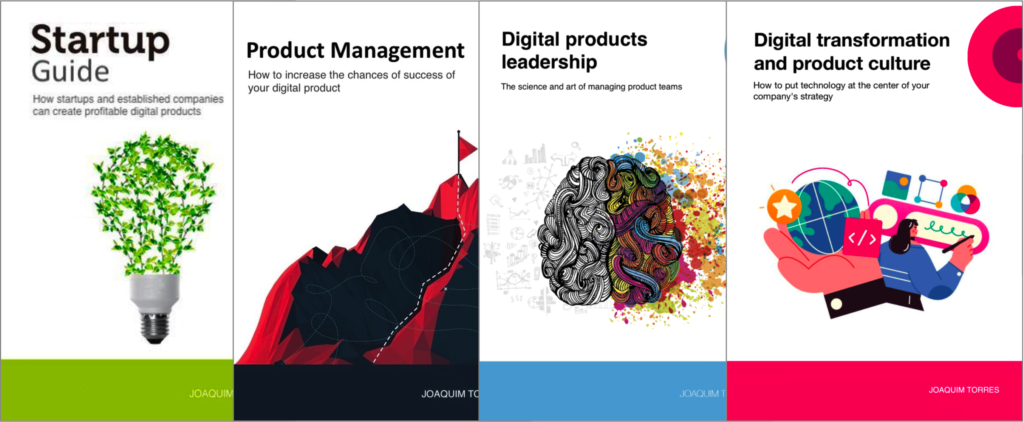
Junior is not an assistant
1 de April, 2025
The Power of Product Vision in Portfolio Management
15 de April, 2025After all, with the widespread use of writing, people would stop exercising their memory.
Writing is a threat to living memory and to the oral transmission of knowledge — which enable debate, active reflection, and true learning.
Sounds crazy, right? But Socrates actually said this about writing. He never wrote anything himself. Everything we know about him was recorded in writing by Plato and other disciples.
Today, that criticism sounds absurd. Writing is the foundation of our culture. It allowed us to transmit knowledge across generations, fueled the progress of science, the rise of universities, the printing press, books, and eventually the internet.
But Socrates’ reaction wasn’t an isolated case.
Every time a new technology emerges that changes the way we think, learn, or create, it sparks fear and resistance.
When Gutenberg invented the printing press, some feared that the multiplication of books would threaten social order, spread dangerous ideas, and weaken oral traditions — exactly what Socrates feared. And yet, the press became the foundation for the advancement of knowledge, science, and education as we know them.
When GPS devices appeared in cars, people said we’d forget how to navigate on our own. When television was invented, many predicted no one would go to the movies or listen to the radio anymore.
At the time, these concerns made sense. But now we can see that these technologies didn’t destroy what came before — they changed the game. They forced adaptation, opened new paths, and expanded our possibilities.
Writing is a technology too. It didn’t come naturally with the birth of humankind — it was created, developed, and incorporated into the way we think over centuries. And we, as human beings, aren’t born knowing how to read and write — we learn the technology of writing in school.
And that’s exactly what’s happening now with artificial intelligence. AI is being seen as a threat:
- to creativity
- to memory
- to genuine wisdom
- to the human presence in thinking and art
Just like writing was once seen by Socrates and those who thought like him. But AI, like writing, is a tool for expansion — not replacement. Like any powerful technology, it can either make us dumber or help us think better. The key lies in how we choose to use it: passively, or intentionally and critically. As a tool for gaming the system, or for amplifying our creative potential.
Very likely, a few decades from now, it will seem just as absurd to fear AI as it does today to think writing would destroy wisdom.
And What Does This Have to Do With Product Development?
Everything.
As product people, we’re constantly challenged by new technologies. AI, Virtual and Augmented Reality, Blockchain, new programming languages, new frameworks — and more recently, the rise of generative AI.
But maybe we’re looking at AI the same way Socrates looked at writing: with fear that it will replace the work of product managers, designers, and engineers.
But that’s not the way we should approach AI. It’s a technology — a tool to enhance our work, helping us improve product development in many areas:
- Accelerating problem discovery: by quickly exploring different angles, synthesizing research, and analyzing qualitative data at scale.
- Creating and (in)validating solution hypotheses faster: by generating alternatives, testing narratives with different audiences, anticipating risks.
- Speeding up product delivery: writing code, building prototypes and interfaces, suggesting improvements based on usage patterns.
- Improving stakeholder communication: summarizing presentations, highlighting what matters most for each audience.
- Unblocking creativity: helping break out of the obvious with prompts, metaphors, and unexpected provocations.
- Reducing operational and repetitive tasks: freeing up more time for what requires thought, sensitivity, and decision-making.
As with any technology, what it delivers depends on how we use it. If we use it intentionally and critically, with context and purpose, it can raise the level of what we do — and of what we’re capable of imagining. Just like writing brought us this far.
I’ve experienced this firsthand. Over the past few months, I’ve been using AI as a kind of thinking partner — a tool to structure ideas, unlock thought processes, and refine texts like this one. AI doesn’t write for me, but it helps me think, test directions, sharpen arguments, and move faster. And it’s been valuable not just for writing better, but for thinking product more clearly.
In the future, it will surely seem absurd to imagine building products without AI — just as today it would be absurd to imagine doing it without writing.
And to get to that future — as Socrates and Plato taught us — we must keep questioning, experimenting, and learning, using this technology as a tool to expand our capabilities.
Workshops, coaching, and advisory services
I’ve been helping companies and their leaders (CPOs, heads of product, CTOs, CEOs, tech founders, and heads of digital transformation) bridge the gap between business and technology through workshops, coaching, and advisory services on product management and digital transformation.
Digital Product Management Books
Do you work with digital products? Do you want to know more about managing a digital product to increase its chances of success, solve its user’s problems, and achieve the company objectives? Check out my Digital Product Management books, where I share what I learned during my 30+ years of experience in creating and managing digital products:
- Digital transformation and product culture: How to put technology at the center of your company’s strategy
- Leading Product Development: The art and science of managing product teams
- Product Management: How to increase the chances of success of your digital product
- Startup Guide: How startups and established companies can create profitable digital products



